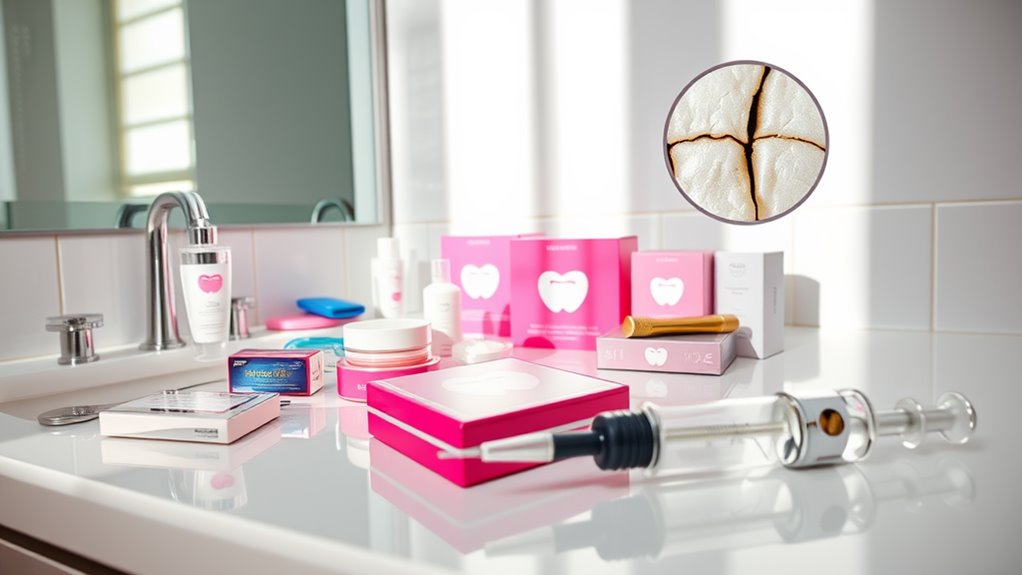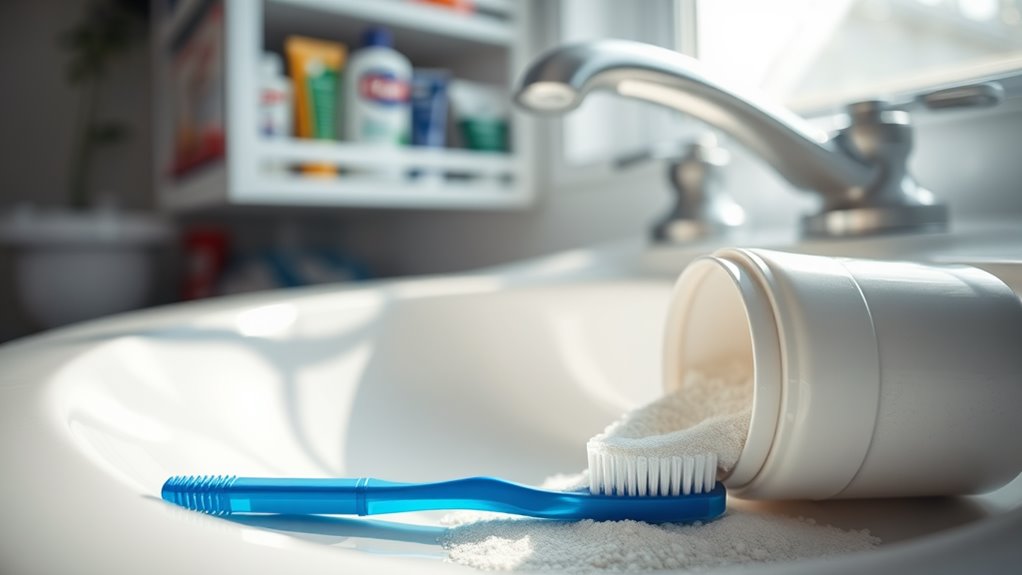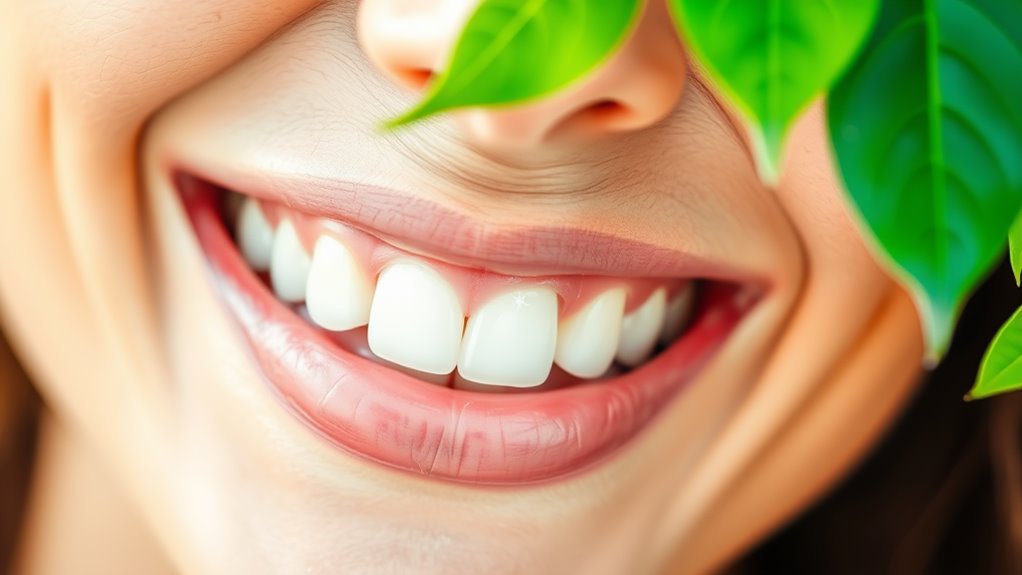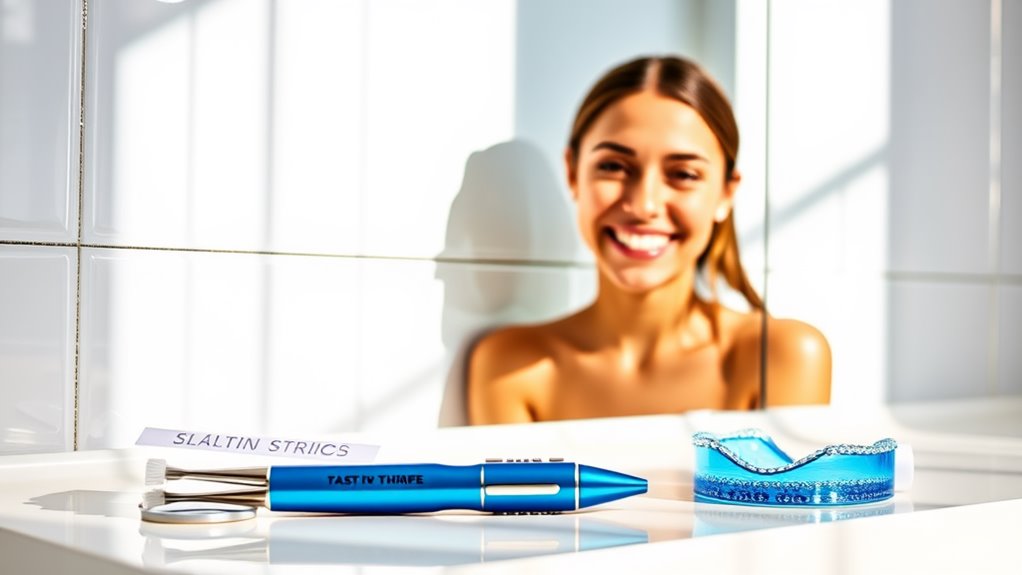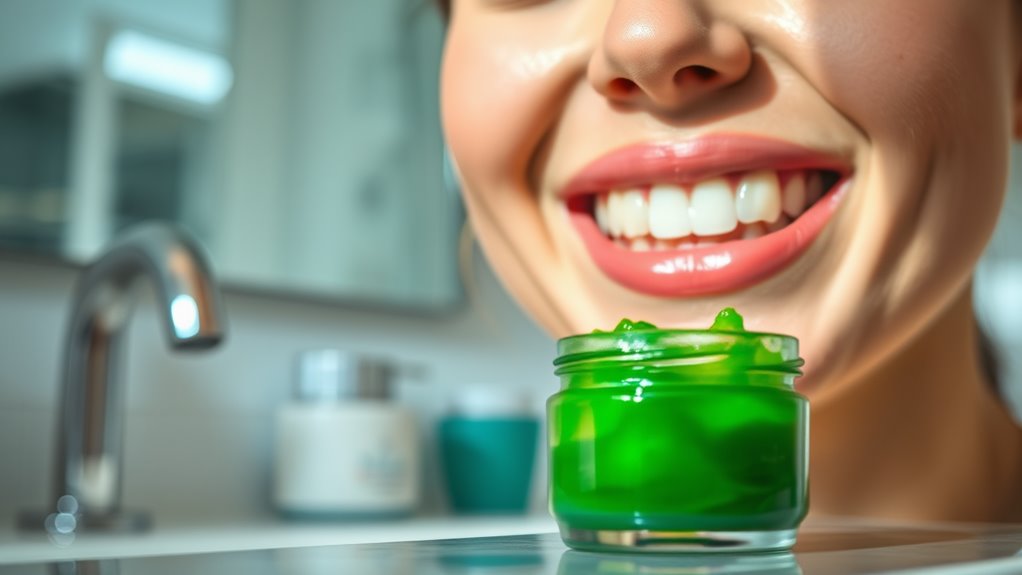The Hidden Dangers of Popular Teeth Whitening Kits (Must Read!)
If you’ve ever considered using a teeth whitening kit, you might want to think twice. Many products promise a brighter smile but come with risks you probably aren’t aware of. Ingredients like hydrogen peroxide can harm your enamel, leading to sensitivity. Plus, abrasive agents might cause damage over time. Curious about what else these kits might hide? Let’s unpack the potential dangers and explore safer options for that dazzling smile you desire.
Understanding the Ingredients in Teeth Whitening Kits
When you consider using teeth whitening kits, it’s crucial to understand the ingredients they contain. Many products promise dazzling results, but some have components that can pose whitening kit dangers.
For instance, hydrogen peroxide is a common ingredient known for its effectiveness but can be harsh if used improperly. You might find kits with abrasive agents that claim to scrub away stains, yet these can wear down your enamel over time.
It’s essential to read labels and research before diving into any whitening regimen. Some kits may include harmful chemicals that can lead to gum irritation or other issues. Additionally, be aware that some whitening agents can erode enamel over time, which is vital for maintaining oral health.
You want to feel confident in your smile, but safety should come first. By being informed about what’s inside the products you choose, you’ll not only protect your teeth but also ensure you’re part of a community that values healthy choices.
Risks of Enamel Damage and Tooth Sensitivity
While teeth whitening kits can deliver bright results, they also carry significant risks of enamel damage and tooth sensitivity. You might be excited about a dazzling smile, but it’s crucial to consider the potential downsides.
-
Enamel Thinning: Overuse of whitening agents can wear down enamel, leaving your teeth vulnerable to decay and discoloration.
-
Increased Sensitivity: Many users experience sharp pain when consuming hot or cold foods and drinks, making everyday enjoyment a challenge.
-
Long-Term Effects: Persistent use can lead to irreversible damage, affecting your smile in ways you didn’t anticipate.
Before diving into the world of at-home whitening kits, remember that your dental health is priceless. Frequent use of baking soda can also contribute to enamel erosion and gum irritation, adding to the risks associated with whitening products.
It’s not just about looking good; it’s about feeling comfortable and confident in your smile. Consult a dentist to find the best approach for your unique needs, ensuring you shine without compromising your oral health.
Potential for Gum Irritation and Allergic Reactions
Using teeth whitening kits can lead to unexpected gum irritation and allergic reactions, especially if you have sensitive gums or pre-existing dental issues. You might think you’re just brightening your smile, but the harsh chemicals in some kits can irritate your gums, causing redness, swelling, or discomfort.
If you’ve experienced reactions to certain ingredients in the past, it’s crucial to be cautious. Many people overlook the fact that even seemingly harmless products can trigger allergic responses. You may find yourself itching, feeling a burning sensation, or noticing unusual swelling. It’s a good idea to perform a patch test before fully committing to any whitening treatment. Additionally, proper technique when using these kits can help minimize potential gum damage and irritation.
Misleading Marketing Claims and Consumer Misinformation
Many consumers are unaware that teeth whitening kits often come with misleading marketing claims, which can create unrealistic expectations about their effectiveness.
You might see dazzling smiles in ads, but the reality can be quite different. Here are three common claims that can mislead:
-
“Whiter teeth in just one use!” – Many products promise immediate results, but true whitening takes time and consistency.
-
“Safe for all teeth types!” – Not every kit is suitable for everyone. Your teeth and gums may react differently, leading to discomfort.
-
“Professional results at home!” – While some kits can lighten teeth, they rarely match the effectiveness of a professional treatment.
It’s essential to approach these products with caution. Overusing whitening products can lead to tooth sensitivity issues, making the process uncomfortable and counterproductive.
You deserve to feel confident about your smile, but make sure you’re informed before investing in teeth whitening solutions.
Trust in your research, and don’t let flashy marketing lead you astray.
Safer Alternatives for Teeth Whitening Solutions
If you’re looking for safer alternatives to achieve a brighter smile, consider natural methods that can effectively enhance your teeth without the risks associated with harsh chemical treatments.
Baking soda is a popular choice; its mild abrasiveness helps remove surface stains. Just mix it with water to form a paste, and brush gently.
Activated charcoal is another trendy option; it binds to stains and can be used in moderation to lift discoloration.
Don’t forget the power of fruits! Strawberries and oranges contain natural enzymes that can help whiten your teeth. Rubbing a strawberry slice on your teeth or using orange peels can be refreshing and effective.
Lastly, maintaining proper oral hygiene by brushing and flossing regularly is crucial. Additionally, poor dental hygiene can result in plaque and tartar buildup, leading to darker teeth.
